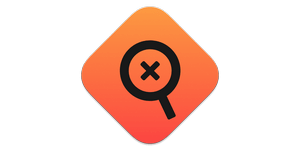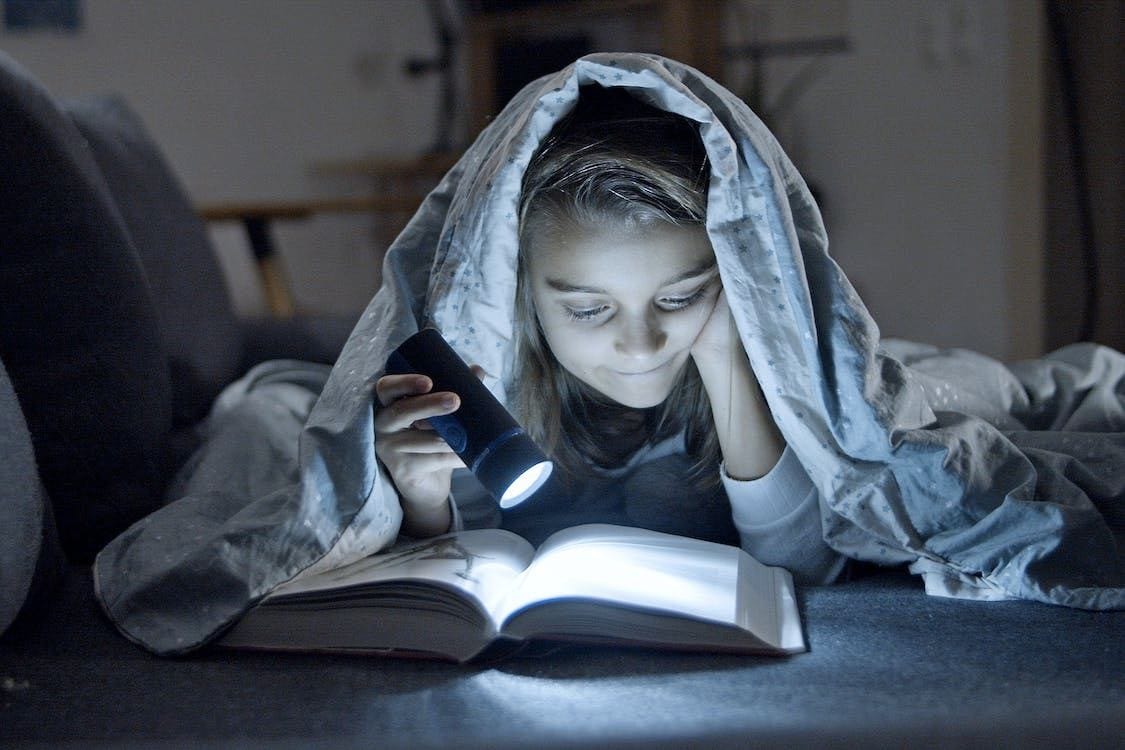Many people have heard from their parents since childhood that reading at dusk without light or with a flashlight under a blanket is harmful to the eyes. We decided to check if this is actually true.
Majority of us at least once in our lives heard warning: “Turn on the light, otherwise you will ruin your eyesight!” special parents are concerned usually causes habit children read at night, covering your head with a blanket and illuminating yourself with a flashlight. With the question of whether it is possible to lose vision due to reading in dim lighting, people turn to ophthalmologists and on resources dedicated corrections vision. Potential harm reading in poor lighting are also covered in media materials and blogs. Speaking about irreversible consequences for vision, sometimes lead in the example of Johann Sebastian Bach - supposedly a German composer lost vision because in his youth he copied music books in the light of the moon.
In order to understand whether reading in low light is harmful to the eyes, you need to understand how this organ works under different amounts of light. Elementary particles of light reflected from an object - photons - fall on the light-sensitive cells of the retina, and they, in turn, transmit a signal to the brain through a chain of neurons using electrical impulses. If the lighting is insufficient, the pupil expandingso that more light reaches the retina. If there is too much light, the pupil contracts, regulating the flow of photons reaching the light-sensitive area of the eye. Such a pupillary reaction - example manifestations of an unconditioned reflex, it is carried out by the body “in automatic mode”, that is, it is impossible to forget to adapt the pupil to the changed level of light. When moving from dim to bright lighting, the pupil reacts very quickly - its diameter decreases to the desired size in just a few seconds. During the reverse transition, that is, adaptation to darkness, the pupil reacts slower. Under normal illumination, the pupil has a diameter of about 3 mm; in the first second after darkening, it increases to 3.8 mm, after 5 seconds. - another 2 mm. In total, the adaptation process takes up to 15 minutes, during which time the pupil reaches 7.4–8 mm in diameter. Darkness, unlike bright light, cannot cause traumatic changes.
For dilation and constriction of the pupil answer muscles: for the first function - the dilator of the pupil (musculus dilatator pupillae), and for the second - the sphincter of the pupil (musculus sphincter pupillae). During a sharp flash, the sphincter muscle quickly tenses, protecting the eye, but some of the light-sensitive cells are still temporarily “switched off” from working. If you suddenly turn on the light in a dark room, then dark spots will float before your eyes for some time and, perhaps, the person will even experience unpleasant painful sensations. If you suddenly turn off the light in a lighted room, the light-sensitive cells will gradually adapt to the darkness, and the person will not experience any painful sensations.
At the same time, everyday experience tells us that in dim lighting the eyes should not experience additional stress. It’s not in vain that when a person feels visual fatigue, he strives to move away from bright light into partial shade and give his eyes rest. Low lighting is a mild irritant to the light-sensitive cells of the retina; due to this, dim light allows the eyes to relax.
Experts agree that low light is not harmful to the eyes. Doctor and popularizer of evidence-based medicine Andrey Sazonov speaks, that “lighting can be sufficient or insufficient. With enough, we are able to read and write, but with insufficient, we are unable to. In other words, any lighting in which reading and writing are possible is considered suitable.” He also makes an interesting parallel: “Saying that reading in low light is bad for your eyesight is the same as saying that listening to soft music is bad for your hearing.” Foreign experts speak in a similar way. American ophthalmologist Richard Rosen calls This belief is a myth and compares the lens system in our eye to a camera: “We don’t think that if we take pictures in low light, we will damage the camera.” Harvard Medical School specialists also reportthat this is a myth. In fact, there is no “insufficient” lighting for reading - if there is not enough light, the eye is not able to distinguish letters, if the eye can still distinguish letters, then there is enough light for reading.
Doctors note that it may be more difficult to focus on text in dim lighting. By words Andrei Sazonov, lower lighting intensity reduces comfort and reading speed, and Dr. Rosen draws Please note that in bright light the depth of field is greater, therefore we can see more small details. Also ophthalmologists notethat reading in dim lighting can lead to faster eye fatigue, and some people experience such strain Maybe even cause a headache. Therefore, it is important to listen to your feelings and, if discomfort occurs, increase the brightness of the light or postpone reading until a more suitable situation.
At the same time, it is legislative installed lighting standards for workplaces of various specialists and for teaching in schools. This indicator indicates at what lighting intensity training or work will be most effective, that is, the people there will not have to strain unnecessarily. However, the document does not say that reducing this indicator will have a harmful effect on the visual organs.
Thus, reading in dim lighting, despite our parents' warnings, may not worsen your eyesight. It is best to focus on subjective sensations and, if you feel tired, give your eyes a rest. However, reading under a blanket with a flashlight cannot be called safe. Although low light does not impair vision, too little distance from the eyes to the book can indeed lead to problems. Optimal the distance from the face to the book is 35–40 cm, so if you cover your head with a blanket and illuminate yourself with a flashlight, it will be extremely difficult to maintain it.
Cover image: Pexels

Not true
Read on the topic:
- Is it true that reading while lying down is harmful to your eyesight?
- Is it true that sitting close to the TV is bad for your health?
- Is it true that reading from a screen damages your eyesight?
If you find a spelling or grammatical error, please let us know by highlighting the error text and clicking Ctrl+Enter.






